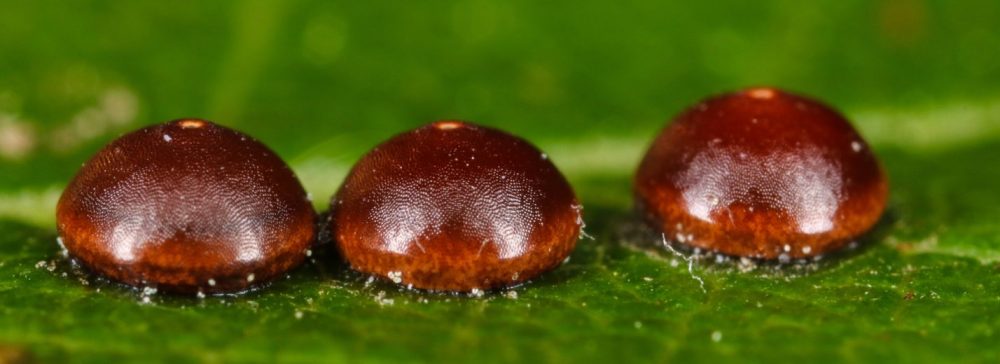I am an associate professor in the Biosystematics Group at Wageningen University, The Netherlands, led by Prof. Eric Schranz. My research explores the evolutionary pathways that shape the intricate interactions between plants, herbivorous insects, their symbiotic microbes, and their natural enemies, such as hymenopteran parasitoids. Beyond advancing our fundamental understanding of insect–microbe–plant evolutionary ecology, I am dedicated to translating this knowledge into applications that benefit society and contribute to sustainable solutions.
As an entomologist, I serve as an educator, ambassador, and advocate for insect biodiversity and conservation. Within the Biosystematics Group, I coordinate and teach two core BSc courses on arthropod biology, systematics, and biodiversity: Biodiversity of the Netherlands (BIS-10306), a first-year mandatory course for Biology and Forest and Nature Conservation students, and Webs of Terrestrial Diversity (BIS-21306), a second-year course for Biology students specializing in Ecology. These courses blend classroom teaching with field excursions and small-group practicals, giving students hands-on experience in arthropod identification using both morphological and molecular approaches. My goal is to inspire the next generation of biologists, fostering an appreciation of arthropod diversity, their ecological and economic significance, and the urgent need for their conservation.
My work extends beyond academia into insect conservation efforts. I contribute to biodiversity inventories and monitoring programs that have resulted in the discovery of new species. At the same time, my research seeks to uncover the evolutionary processes that generate and maintain insect biodiversity. I am particularly interested in developing sustainable agricultural practices that integrate diverse pest management strategies, including biological control by parasitoid wasps, crop resistance breeding, and promoting biodiversity. These pesticide-free alternatives support the vision of sustainable agriculture and circular agrofood systems embraced by the Dutch government and the EU, while helping to safeguard—and even enhance—insect biodiversity.
My research goals include:
- Investigating the evolutionary, genetic, and molecular mechanisms of a butterfly egg-killing plant trait triggered by pest insects in economically important cabbage crops.
- Exploring the evolution of butterfly anti-sex pheromones and their potential constraints by tiny Trichogramma egg parasitoids, natural enemies of butterflies and moths.
- Supervising a PhD project on urban biodiversity, specifically studying insect biodiversity on green roofs (BiodiverCity).
- Researching biocontrol by parasitoid wasps of olive fruit flies in Crete, Greece, and the butterflies and moths affecting cabbage crops in Germany.
- Examining the tripartite interactions between the fungus Fusarium attacking banana plants and the banana weevil, in collaboration with Desalegn Etalo and Gert Kema from Phytopahtology.
Students that are interested in joining me are welcome, check for MSc/BSc thesis possibilities!
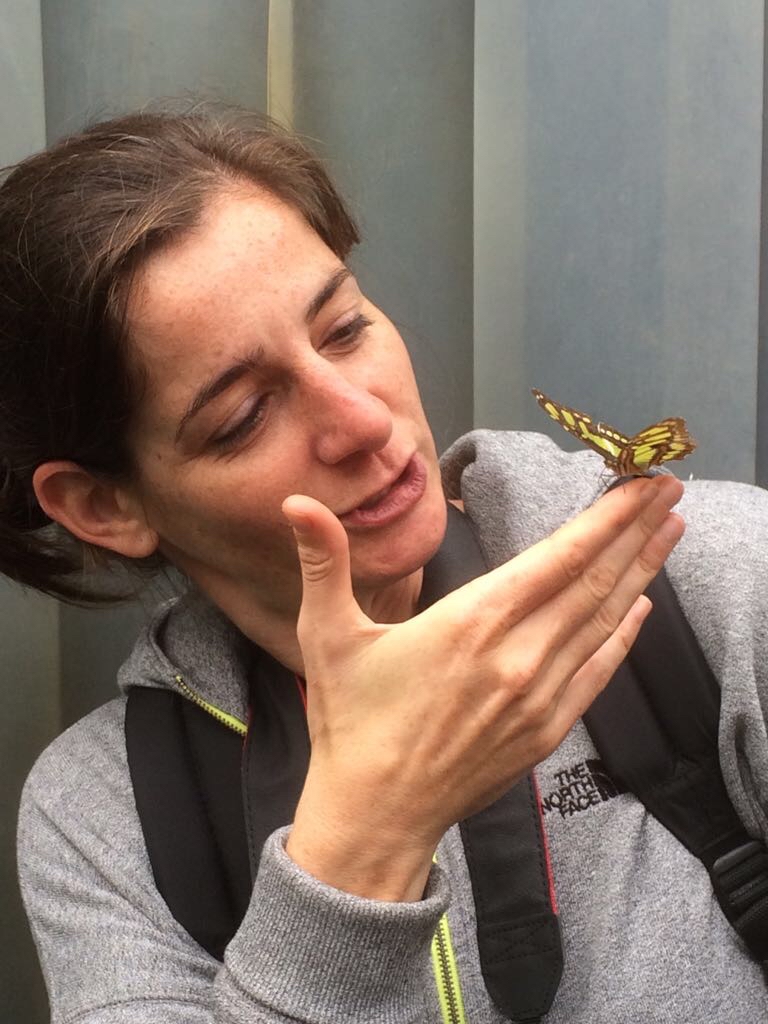
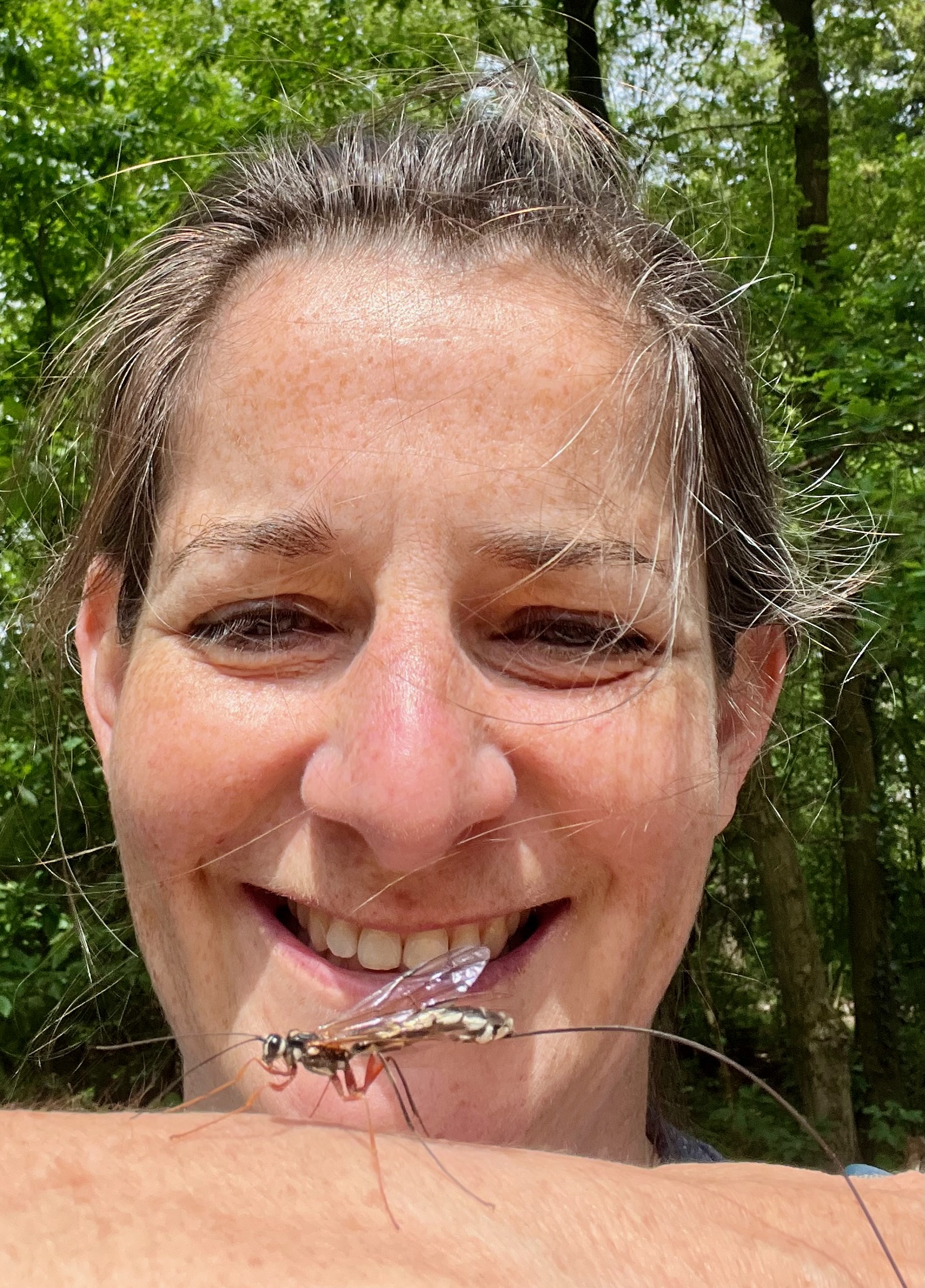
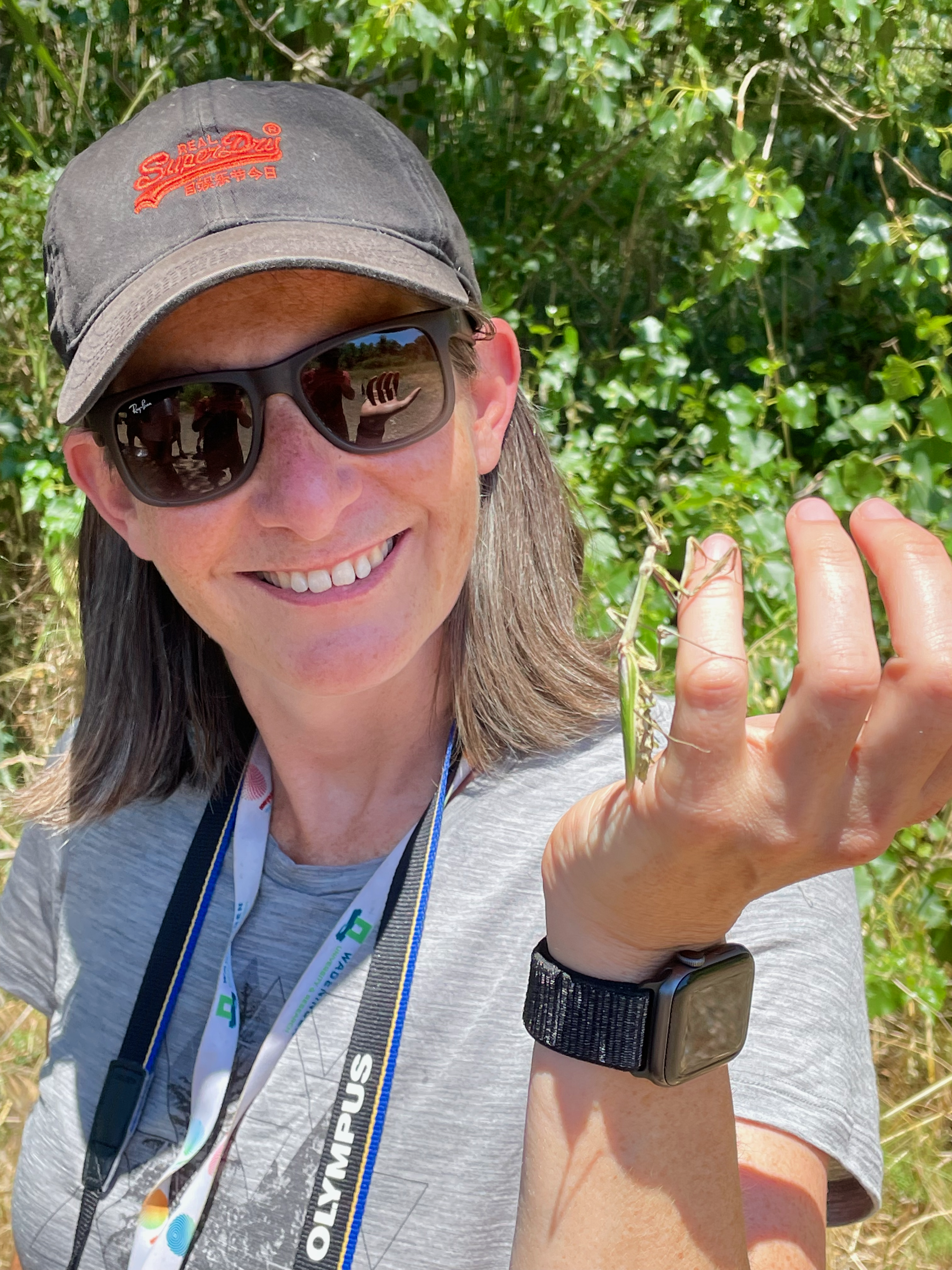
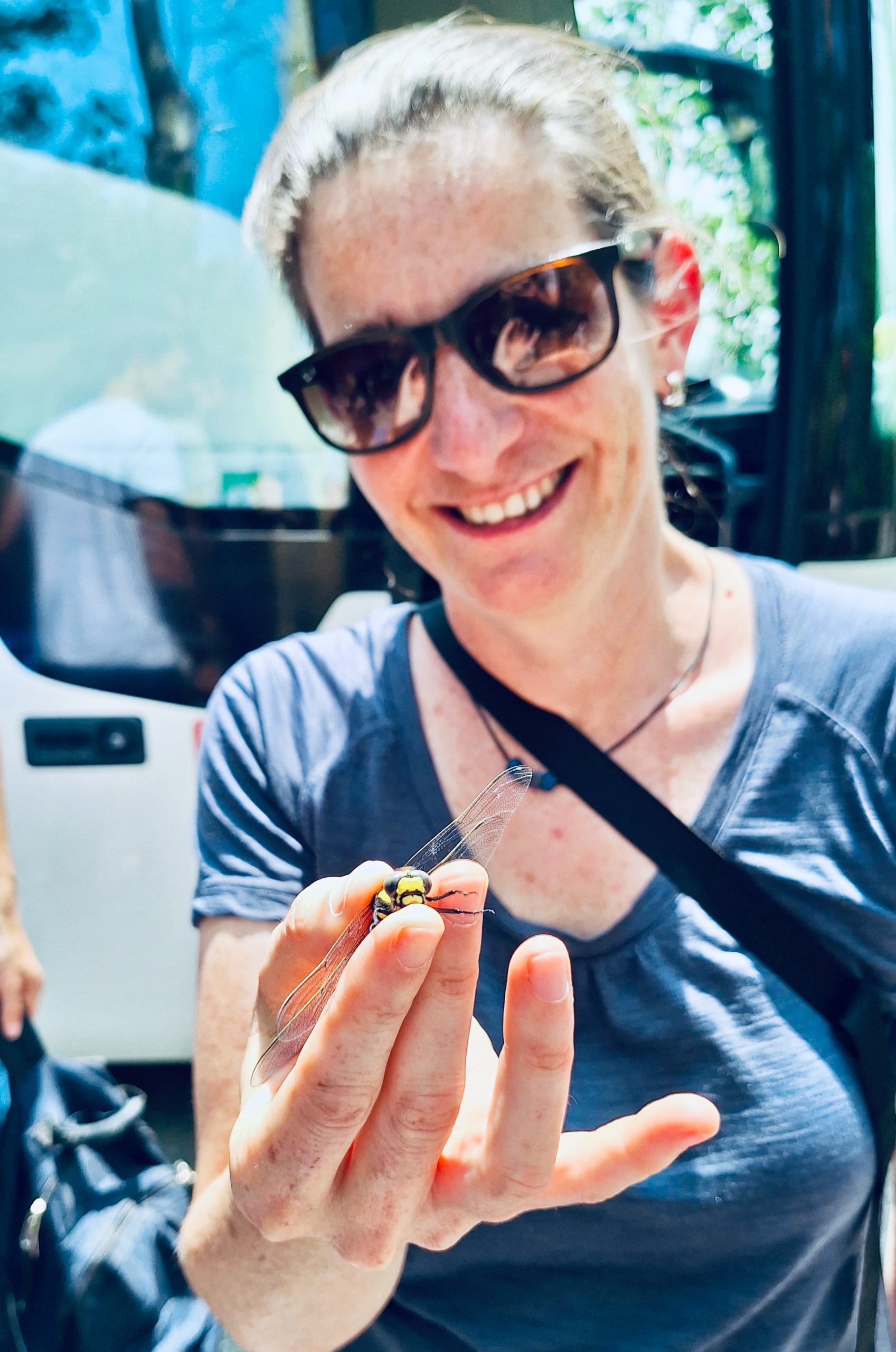
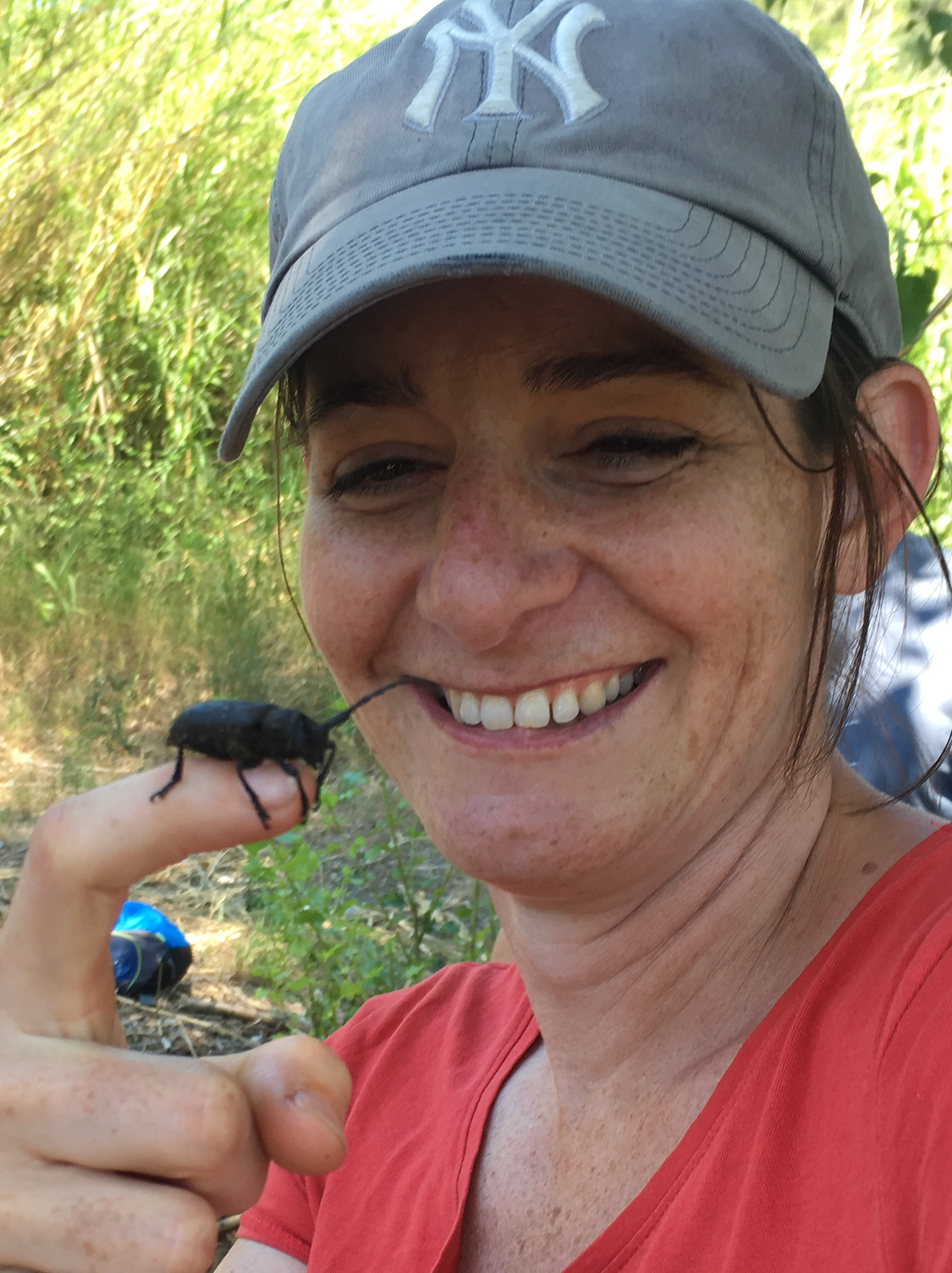
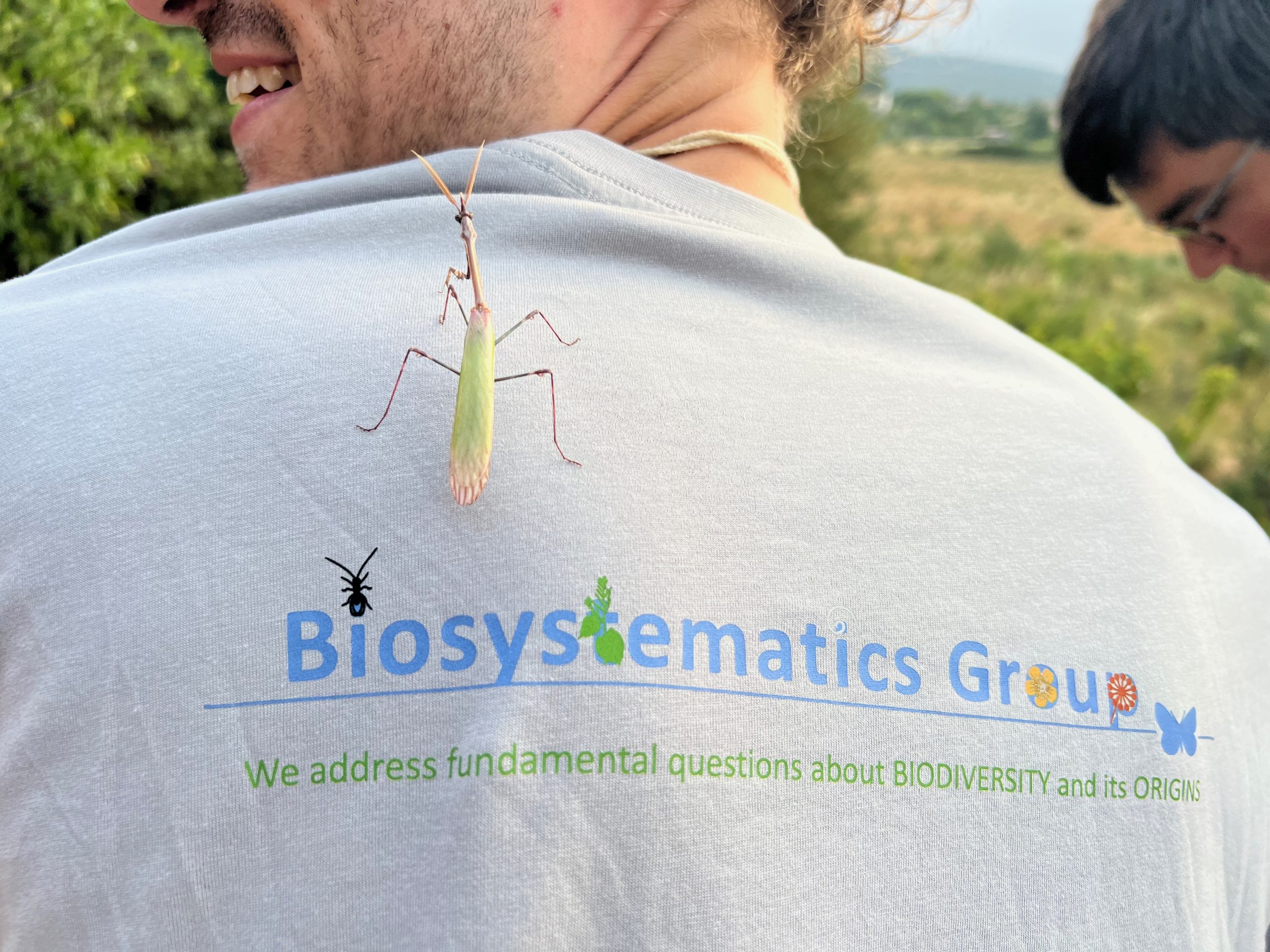
Biosystematics Group t-shirt with praying mantis
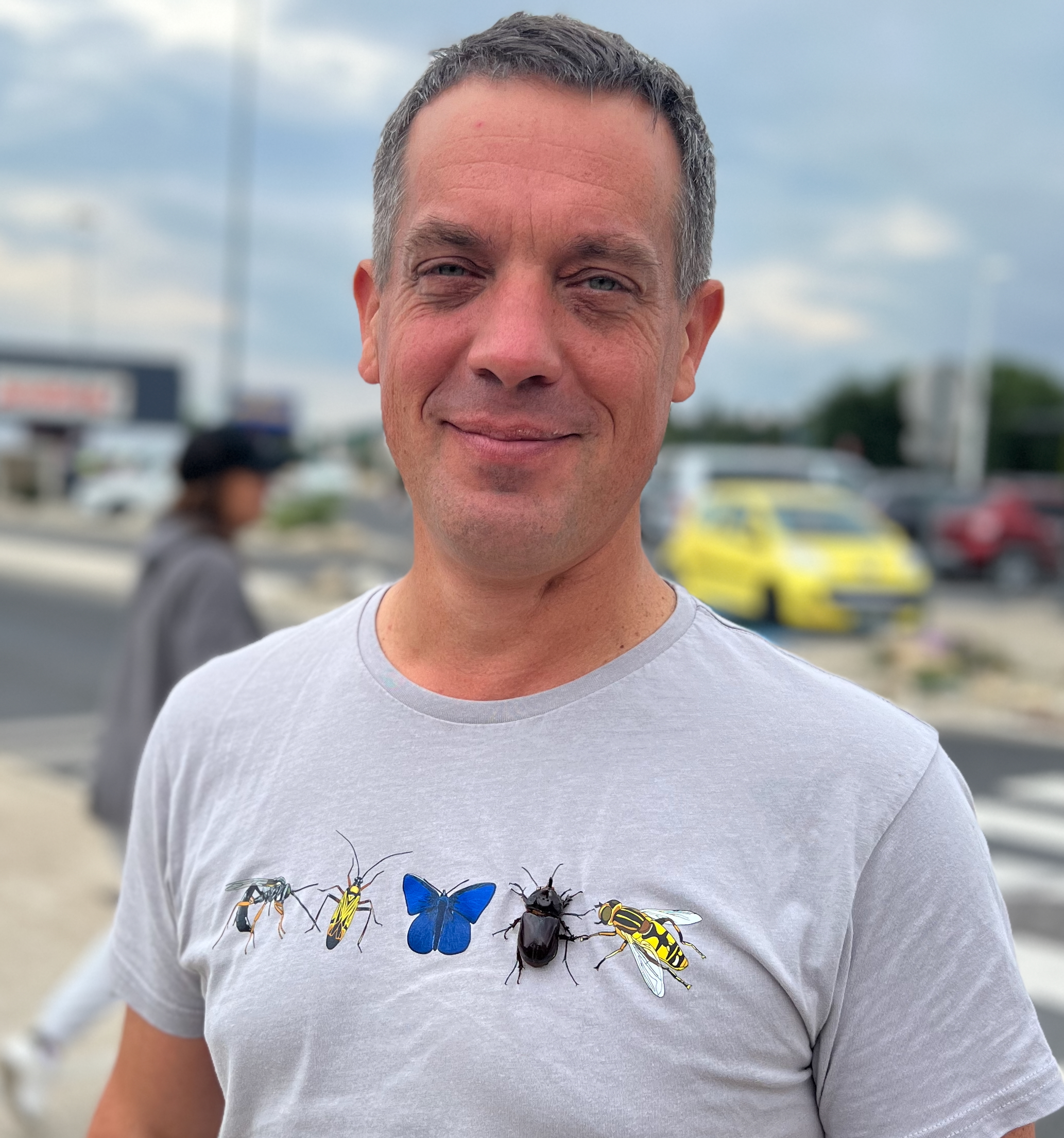
Front of Biosystematics Group t-shirt with rhinoceros beetle
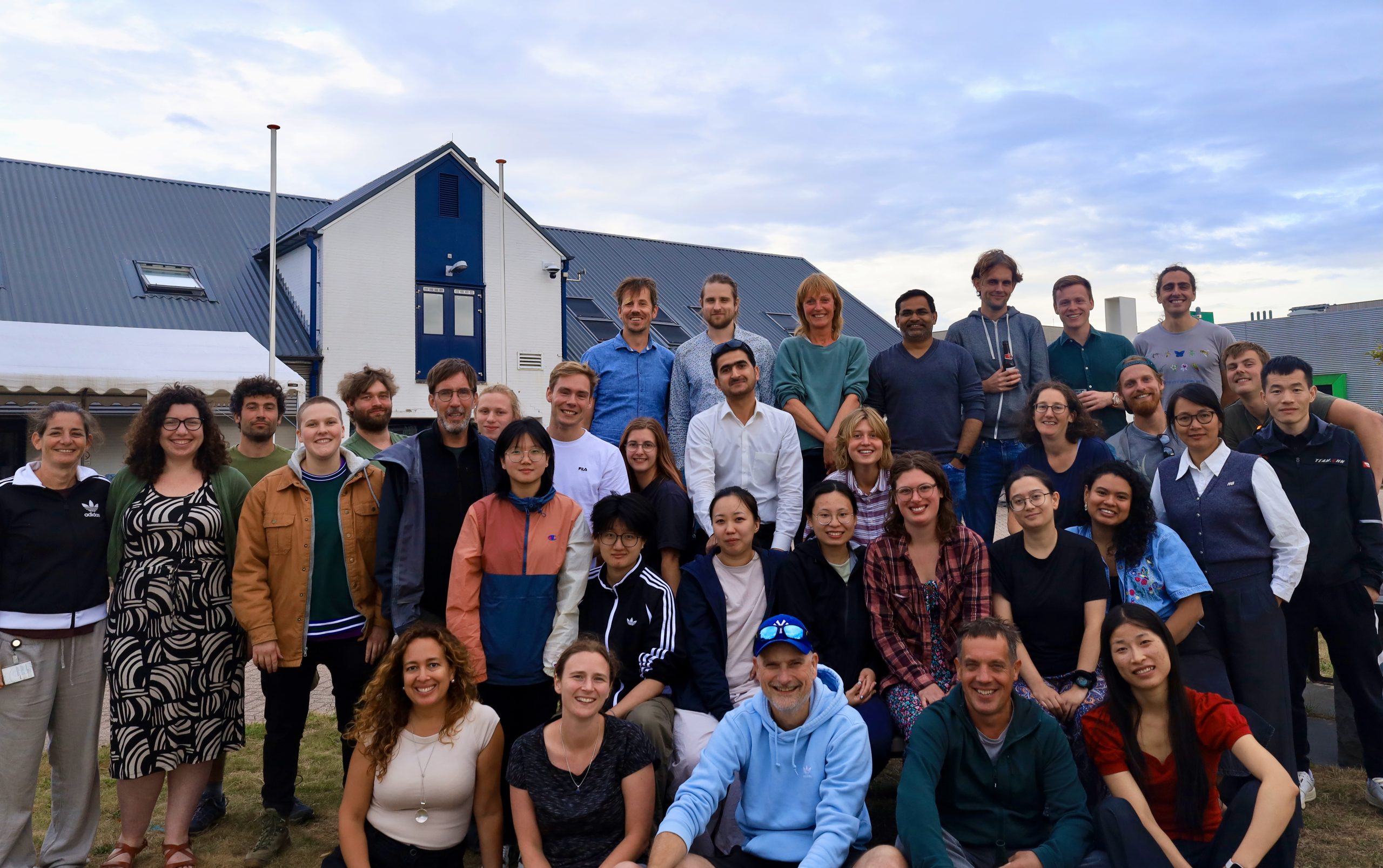
Biosystematics Group during the lab outing 2025

